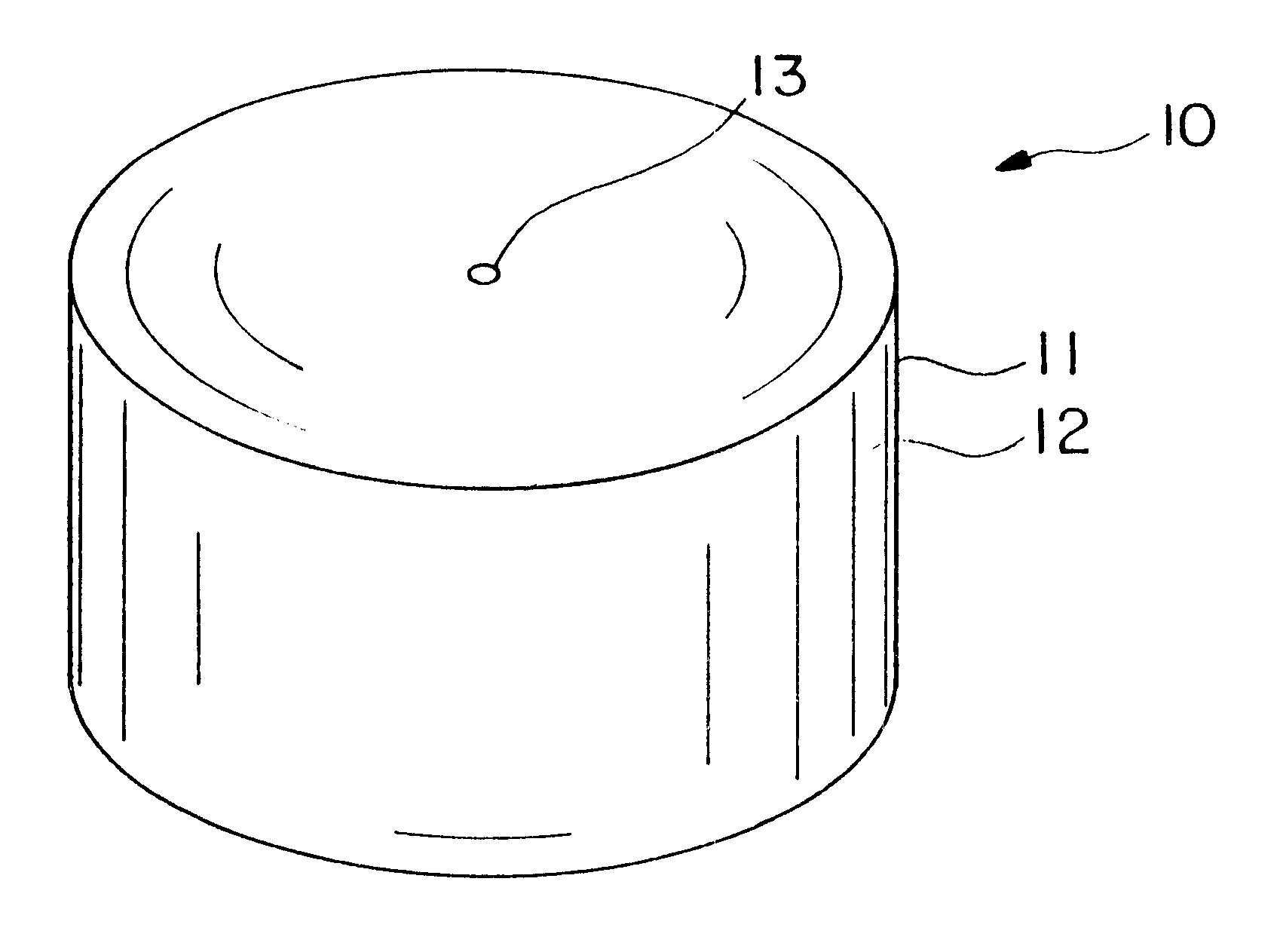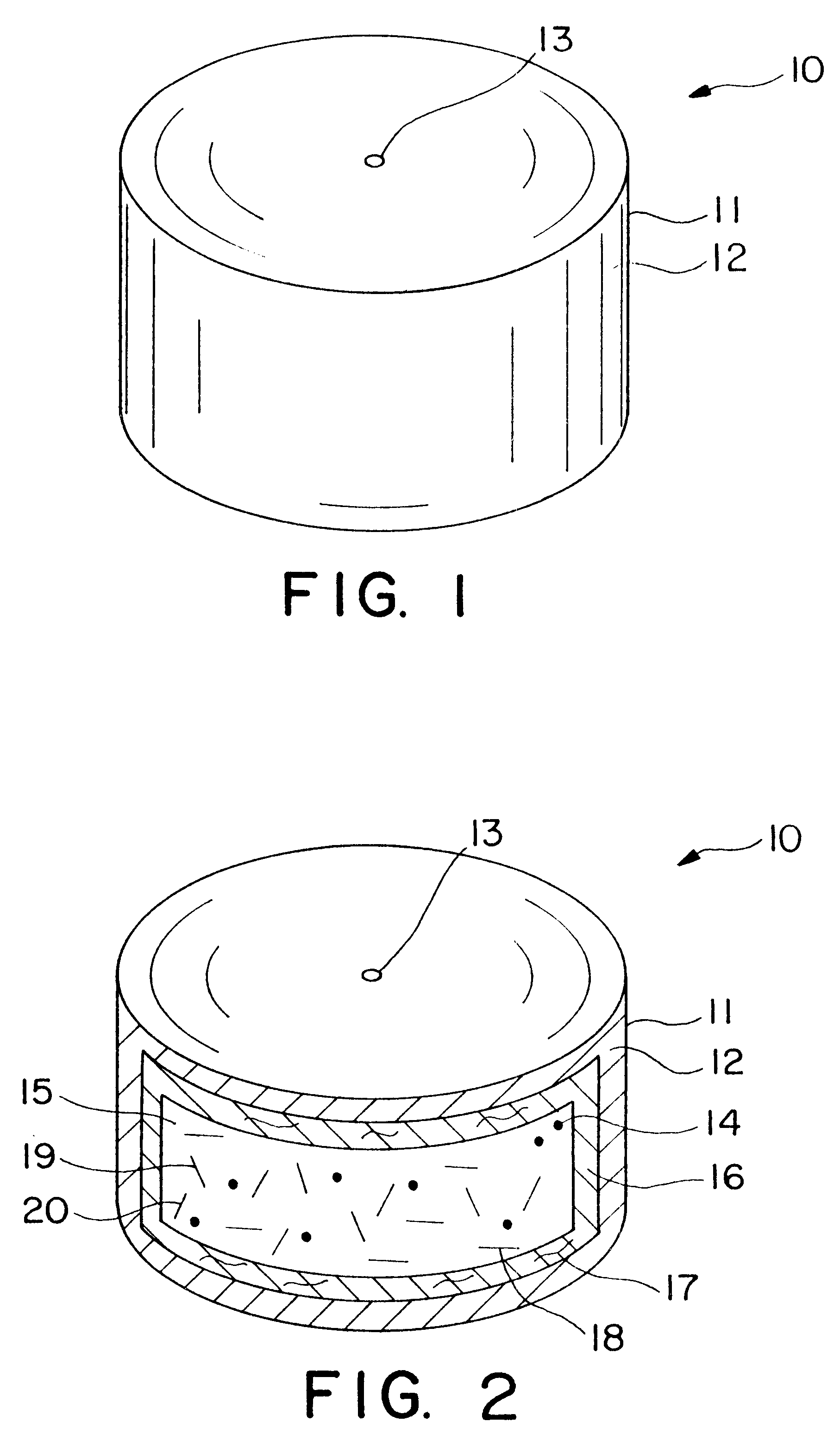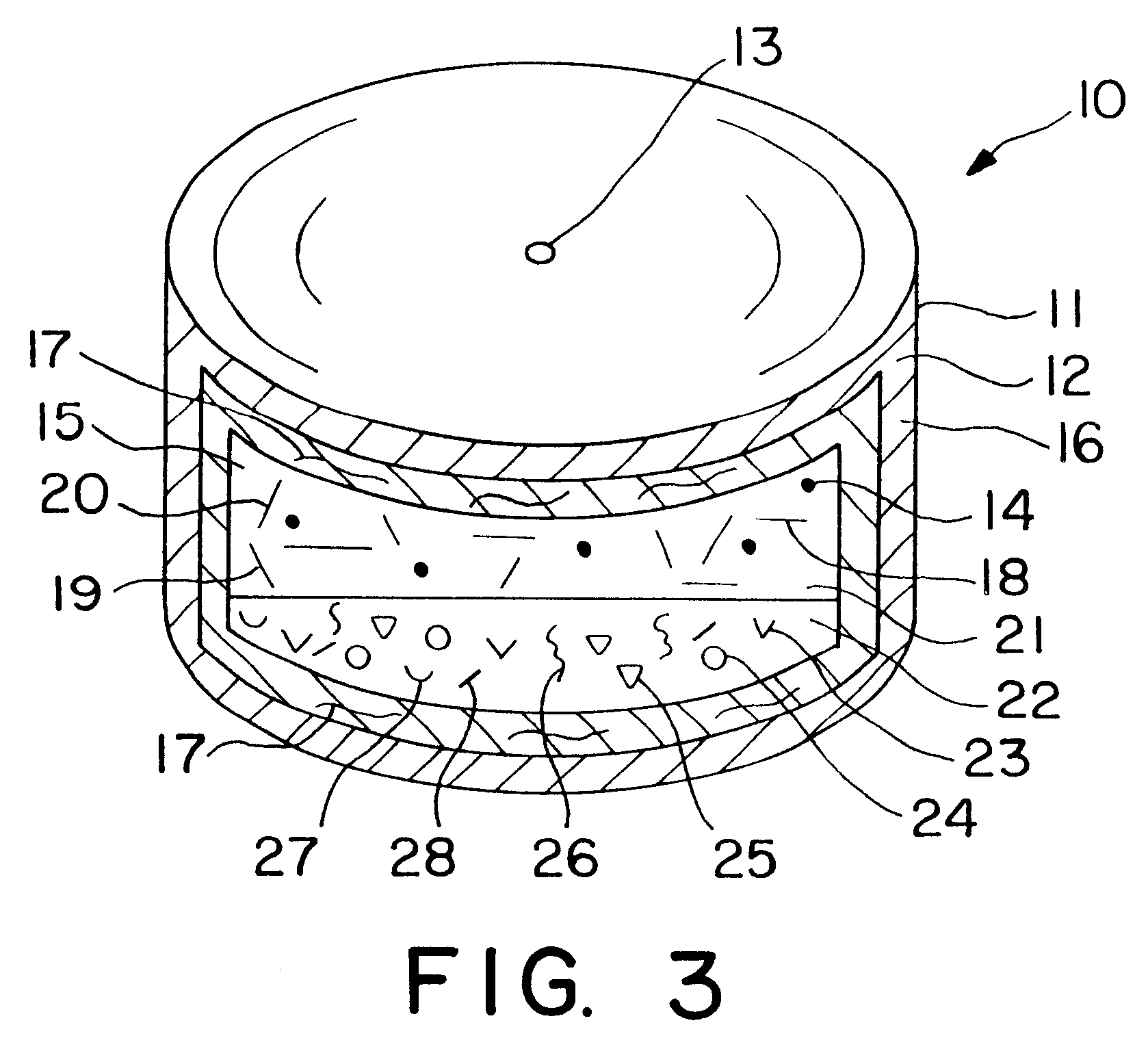Dosage form having first and second coats
a technology of dosage form and coat, which is applied in the directions of osmotic delivery, pill delivery, medical preparations, etc., can solve the problems of serious shortcomings associated with the administration of drugs, dosage form does not improve the stability of a drug formulation, dosage form does not prevent oxidation, etc., and achieves the effect of increasing the porosity and increasing the permeability of the composition
- Summary
- Abstract
- Description
- Claims
- Application Information
AI Technical Summary
Benefits of technology
Problems solved by technology
Method used
Image
Examples
example 1
The therapeutic dosage form provided by the invention is prepared as follows: first, 2.4 g of oxybutynin hydrochloride, 42.6 of mannitol, and 194.8 g of polyethylene oxide of 100,000 weight-average molecular weight are dry blended for 10 minutes in a 200 ml beaker, with mixing for 10 minutes with a stainless steel spatula. Next, the dry blend drug composition is blended with 200 mg of magnesium stearate and the blended ingredients thoroughly blended to produce a homogenous drug composition. Next, the dry blend drug composition is compressed into a single layer tablet. Then, 150 mg of the drug composition is compressed under a pressure head of two-tons into a 9 / 32 inch (7.14 mm) diameter standard round tablet to provide the composition comprising the drug and the polyethylene oxide.
Next, the tablets are transferred to a tablet coating machine, where they are spray coated first with a solution of ethylcellulose comprising a 158,000 weight-average molecular weight and hydroxypropylcell...
example 2
An osmotic dosage form with a second bioprotective coat which delivers 75 mg the anti-arrhythmic drug, encainide hydrochloride, at controlled rate was fabricated as follows: 500 grams of the drug, 233.8 grams of polyethylene oxide of molecular weight 200,000 grams per mole, 233.8 grams of polyethylene oxide of molecular weight 300,000 grams per mole, and 30 grams of hydroxypropyl methyl cellulose having a methoxyl content of 29 weight percent, a hydroxypropyl content of 10 weight percent, and a molecular weight of 11,300 grams per mole, were passed through a mesh having 40 wires per inch. The dried powders were tumble mixed for 5 minutes. To the dry mix was added slowly with stirring in a planetary mixer anhydrous ethyl alcohol until a damp mass was formed. The damp mass was then passed through a mesh having 20 wires per inch, producing granules which were air dried overnight at ambient conditions. After drying, the granules were passed again through the 20 mesh sieve. Then, 2.5 gra...
example 3
The dosage form manufactured in Example 2 was manufactured in this example with all the procedures followed as set-forth previously. In this example, a final finish coat, is overcoated onto the second coat. The finish coat consists of hydroxypropylmethylcellulose having a hydroxypropyl content of 10 weight percent, a methoxyl content of 29 weight percent and a molecular weight of 11,900 grams per mole of applied from an aqueous solution until a 20 mg was applied, forming the final coat, final coat three. The resulting coated systems were then dried in a forced air oven at 50 degrees centigrade for three days. Four of these systems were drilled with a delivery port and then administered to dogs. The animals were checked periodically and the presence or absence of residual systems in the stools was monitored. The window of time which the dosage form had resided within the animal was identified. All four systems were recovered from the stools of the animals and residual drug content wa...
PUM
 Login to View More
Login to View More Abstract
Description
Claims
Application Information
 Login to View More
Login to View More - R&D
- Intellectual Property
- Life Sciences
- Materials
- Tech Scout
- Unparalleled Data Quality
- Higher Quality Content
- 60% Fewer Hallucinations
Browse by: Latest US Patents, China's latest patents, Technical Efficacy Thesaurus, Application Domain, Technology Topic, Popular Technical Reports.
© 2025 PatSnap. All rights reserved.Legal|Privacy policy|Modern Slavery Act Transparency Statement|Sitemap|About US| Contact US: help@patsnap.com



